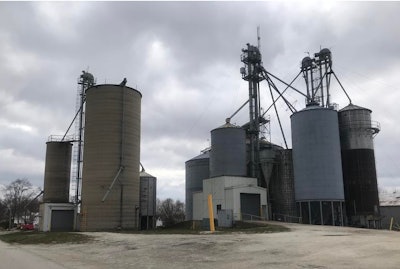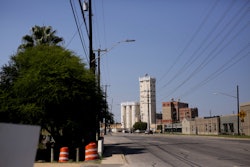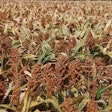
Ludlow Cooperative Elevator Co. has closed its grain elevator in Loda, effective immediately, and has no plans to re-open it, says a report at the Ford County Record.
“More than likely it will be for good,” said Ludlow Co-op’s General Manager Paul Seaman.
The decision to discontinue accepting grain at the facility was made recently by the company’s board of directors. What happens with the facility — including whether it ends up being sold — has not been decided, but Seaman said it may still be used by the co-op for grain storage.
“We’re going to use it internally ... for our own use on a year-by-year basis depending on if we need storage or not,” Seaman said. “So we may use it ourselves to store some bushels.”
Seaman said the reason for closing the Loda facility was that it “doesn’t handle enough bushels annually to generate enough income to cover the expenses.”
“We were losing money on that facility every year, and it just doesn’t make good business sense to keep losing money,” Seaman said.
On average, only about 250,000 bushels of grain are delivered to the Loda elevator per year. That makes up only about 1% of Ludlow Co-op’s “total volume” for its nine elevators — located in Loda, Ludlow, Paxton, Perdueville, Buckley, Del Rey, Piper City, La Hogue and Danforth, Seaman said.
The Loda facility’s only full-time employee will continue working for Ludlow Co-op, just at another location, Seaman said.
Seaman said he personally contacted every farmer who delivered grain to the Loda elevator last year to explain the situation.
“Some were more understanding than others,” Seaman said. “As farmers get bigger and faster, our elevators have to keep up. And if we can’t keep up, those bushels are going to go elsewhere. The board made the decision that we can only afford to spend so much money on our facilities, and we’ve got to start picking and choosing and prioritizing where to spend those dollars, and it just wasn’t feasible to spend the asset dollars that we need to at Loda.
“It’s not a good deal for those local farmers, and we understand that. But, like I said, it was a business decision that we had to make, and it’s not an easy one but hopefully if they look at it from a business point of view, hopefully they understand that and realize what the board did and why.”

















